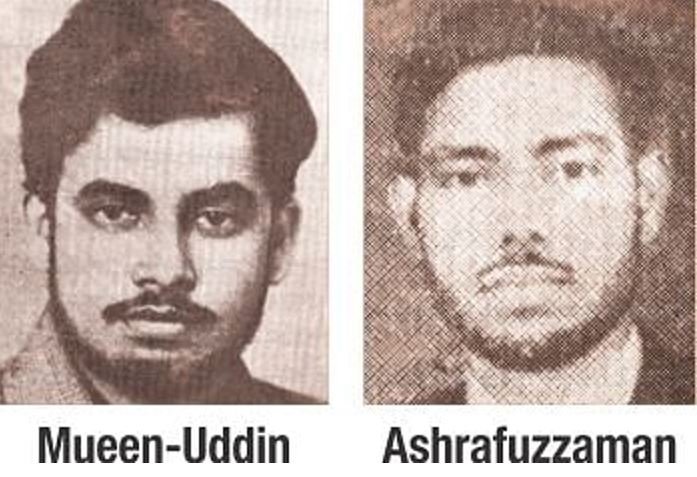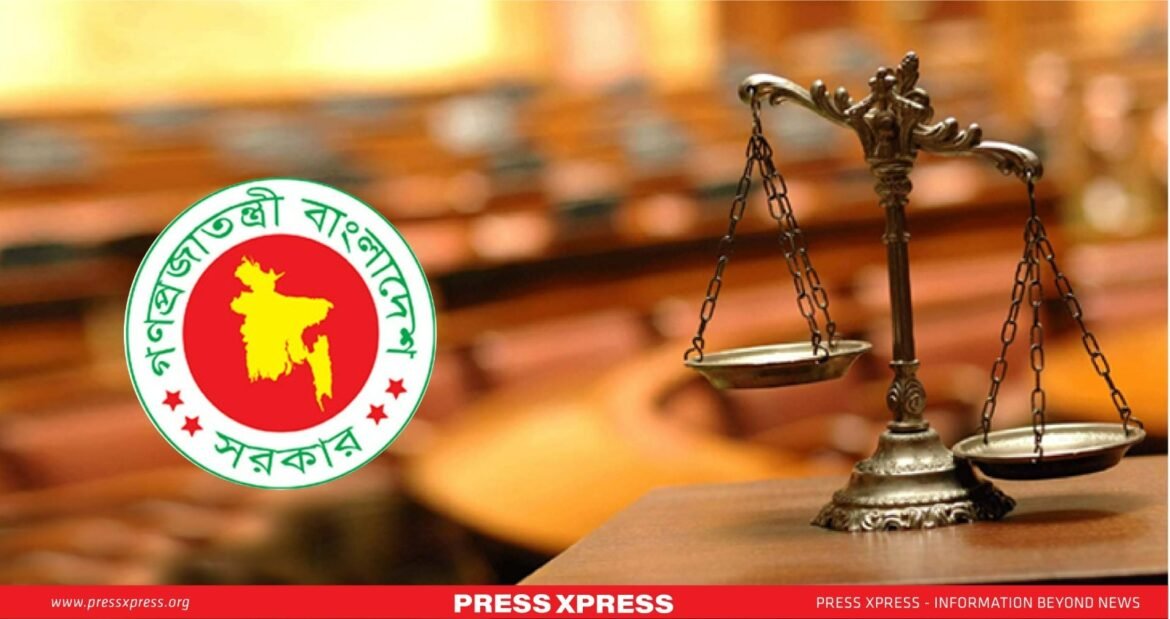The war crimes tribunal in 2013 handed down death sentences to the Al-Badr leaders for the massacre of the nation’s intellectuals during the 1971 war.
The Bangladeshi government has actively pursued the extradition of convicted war criminals Chowdhury Mueen Uddin and Ashrafuzzaman Khan, residing in the UK and the US, respectively. Their involvement in the abduction and brutal murder of 18 intellectuals during the turbulent period of December 1971 resulted in their death sentences by the Special War Crimes Tribunal.
The Ministry of Foreign Affairs has shown unwavering determination in seeking justice for these crimes. During a regular media briefing, spokesperson Seheli Sabrin emphasized the government’s ongoing efforts, affirming, “We are in constant communication with these countries, actively collaborating to ensure their return.”
Background of Convicted War Criminals
With an object to cripple a nation intellectually, two men carried out a massacre 49 years ago just before the birth of independent Bangladesh.
During the 1971 Liberation War, Chowdhury Mueen-Uddin and Ashrafuzzaman Khan held pivotal positions as the ‘operation in-charge’ and ‘chief executor,’ respectively, within Al-Badr, a local collaborator of the Pakistani occupation army. They played a central role in the killings of the country’s intellectuals, targeting teachers, physicians, journalists, and writers.
They faced trial for their crimes against humanity, and in 2013, a special tribunal sentenced the pair to death for orchestrating the abduction, torture, and murder of intellectuals during the War of Independence.
Nine Dhaka University teachers, six journalists, and three doctors became the victims of their massacre.
The victims are:
- Prof Munier Chowdhury (Renowned film-maker and Dhaka University)
- Prof Mufazzal Haider Chaudhury
- Dr Faizul Mohiuddin
- Selina Parvin (Journalist)
- Shahidullah Kaiser
- Md Fazle Rabbi (Physician)
- Alim Chowdhury
Yet, even after seven years since the verdict, the two war criminals are still fugitives in the eyes of law as they remain untouched.

Mueen in UK
Hailing from Feni, Chowdhury Mueen-Uddin ascended to a central leadership position within Islami Chhatra Sangha, the student wing affiliated with Jamaat-e-Islami, eventually becoming a prominent figure within the notorious militia group Al-Badr.
He fled Bangladesh right after December 16, 1971, and developed himself as a Muslim leader in the UK and took citizenship there.
His roles expanded to include vice-chairmanship at the East London Mosque, engagements at the London Muslim Centre, and directorship of Muslim Spiritual Care Provision within the UK’s National Health Service.
In December 2017, The Sun, a British newspaper, highlighted Mueen’s status as one of Interpol’s most wanted British fugitives, depicting his opulent lifestyle in London. The publication detailed his residency in a home valued at $1,334,260 and portrayed him leading an ordinary life in the British capital, engaging in activities such as shopping and attending the local mosque without hindrance.
Disputing the allegations and evidence presented against him in the International Crimes Tribunal in Dhaka, Mueen dismissed them as baseless. According to the British publication, he initiated an appeal against the Interpol red notice.
Asraf in US
During the war, Ashrafuzzaman Khan, a central leader within Islami Chhatra Sangha, was entrusted with the responsibility of leading Al-Badr in Dhaka.
Prosecutors identified him as the commander of Al-Badr’s Gazi Salahuddin Company.
After the country gained independence, he initially sought refuge in Pakistan, where he spent some time before eventually relocating to the United States.
Ashrafuzzaman is recognized within South Asian Muslim communities and holds US citizenship.
During the Liberation War, Ashrafuzzaman’s diary, discovered at his Nakhalpara residence in Dhaka, contained detailed plans and a list of targets for the killings that occurred in the early hours of December 14, 1971.
Pursuing Justice Beyond Borders
The heinous crimes committed by Mueen and Khan against Bangladesh’s intellectual community have left a profound mark on the nation’s history. The government’s unwavering dedication to pursuing justice for these atrocities extends beyond its borders, seeking the extradition of these criminals to face the consequences of their actions.
The collaboration between Bangladesh and the UK, as well as the US, signifies a concerted effort to uphold justice and hold accountable those responsible for grave human rights violations. The utilization of Interpol’s red notice mechanism highlights the global reach and cooperation in ensuring that perpetrators of such crimes are not immune to justice, irrespective of their location.
Historical Context
In 2009, the Bangladeshi government took a significant step by voting to try war criminals according to the International Crimes Tribunal (ICT) Act of 1973. This decision demonstrated the government’s commitment to addressing past injustices while also considering amendments to align the legal framework with international standards for similar trials.
The International Crimes Tribunal (Bangladesh) was established in 2009 to investigate and prosecute individuals responsible for the genocide committed in 1971 by the Pakistan Army and their local collaborators. The creation of the tribunal underscored the government’s dedication to seeking justice for the atrocities committed during the Bangladesh Liberation War.
Lastly, as Bangladesh remains committed to reconciliation and healing, it’s crucial for the global community to acknowledge and applaud the government’s endeavors in upholding justice, fostering a society rooted in accountability and human rights.


